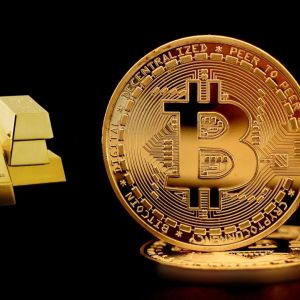American economist Saifedean Ammous argues that Bitcoin is superior to gold because it has a fixed supply, is digital, and is not controlled by governments, making it a better store of value and a solution to inflation and debt issues in today’s financial systems. Ammous, author of The Bitcoin Standard , argues in a recent interview that Bitcoin is superior to gold. He believes Bitcoin is a revolutionary form of money. Its fixed supply and decentralized nature make it more reliable than gold. “That’s what #Bitcoin fixes. If we go back to having a HARD money where money is no longer debt, we no longer need to be monetizing debt. We no longer need to get everyone to become a debt slave in order for us to have a form of money.” – @saifedean w/ @JoeSquawk 🎯 pic.twitter.com/Tb3HLT2n4o — Walker⚡️ (@WalkerAmerica) December 13, 2024 Bitcoin vs. gold Ammous explains that while gold has historically been used as money due to its scarcity and store of value properties, Bitcoin has taken these qualities to a new level. “Gold has been used for 4,000 years because it stores value well. But the problem with Gold is that it’s not as scarce as Bitcoin,” Ammous states. “The annual increase in gold supply is around 1.5% to 2%, whereas Bitcoin’s supply is capped at 21 million, and its annual supply growth rate is even lower—about 0.8% during its current four-year period,” he added. On e of the advantages Bitcoin has over gold is its fixed supply, which is set in stone. “ There’s only ever going to be 21 million Bitcoin. That’s it. It’s a simple fact, and no other form of money can claim such a property,” Ammous continues. This scarcity makes Bitcoin a somewhat deflationary asset, unlike fiat currencies that governments can print in unlimited quantities. Am mous believes this unique property makes Bitcoin a much stronger store of value compared to gold or any government-issued currency. Another key difference is how Bitcoin operates. While gold relies on physical storage and transport, Bitcoin is purely digital, meaning it can be transferred and stored globally without needing physical handling. “Bitcoin is just software. It doesn’t require a legal framework that is tied to government-backed currencies. It’s decentralized and automated,” Ammous points out. He contrasts this with fiat money, which is deeply intertwined with government control and monetary policy. Why Bitcoin is the future of money Ammous also highlights the importance of Bitcoin’s ability to prevent inflation. Unlike fiat currencies, which lose value over time as central banks print more money, Bitcoin’s fixed supply makes it impervious to inflationary pressures. “In the world of fiat, governments continuously increase the supply of money, which leads to a decrease in its value,” he explains. “In the case of Bitcoin, no one can just print more. It’s a money that cannot be inflated.” Ammous stresses the issue of debt in today’s financial systems. “Fiat money is built on the concept of debt. Every time the government needs more money, they increase the currency supply, essentially creating more debt,” he states. This creates a cycle of borrowing and inflation that benefits the government but harms everyday citizens who watch their savings lose value. In contrast, Bitcoin provides a way out of this system. “With Bitcoin, you don’t need to be in debt to participate in the economy. It’s a form of money that doesn’t require borrowing or printing,” he says. The economist believes that Bitcoin’s technological advantages and fixed supply make it the ideal money for the modern age. “B itcoin is a form of money that is more scarce, portable, and secure than gold,” he concludes. “It offers a solution to the problems caused by fiat currencies and offers a future where money is no longer tied to government debt and manipulation.” With more people realizing Bitcoin’s revolutionary potential, its value continues to rise as a monetary asset that will outlast and outperform gold in the coming years. A Step-By-Step System To Launching Your Web3 Career and Landing High-Paying Crypto Jobs in 90 Days.















